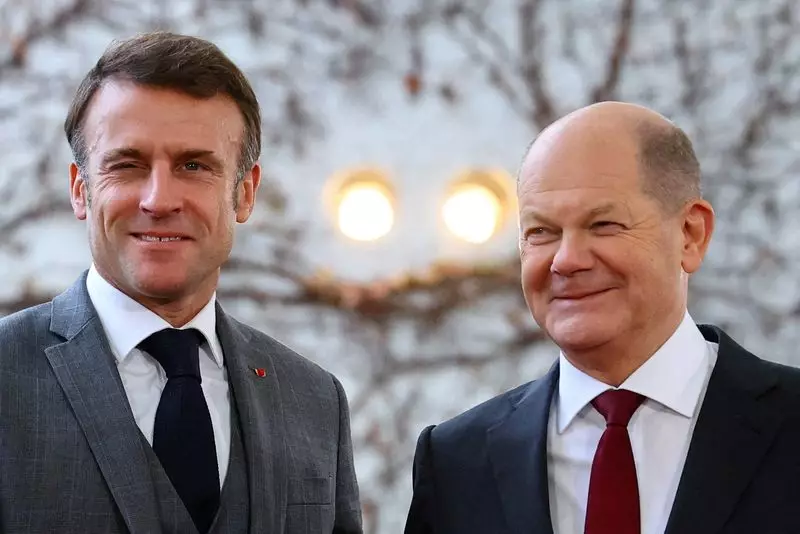As French President Emanuel Macron embarks on a three-day state visit to Germany, the longstanding relationship between the European Union’s two biggest powers is under scrutiny. Macron’s visit comes at a crucial time as the EU prepares for upcoming parliamentary elections, with both countries eager to demonstrate unity in the face of major challenges facing Europe. The last French presidential state visit to Germany took place 24 years ago, highlighting the significance of this trip in the current political landscape.
Despite their different leadership styles, Macron and German Chancellor Olaf Scholz have managed to reach compromises on various issues, ranging from fiscal reform to changes in power market subsidies. These agreements have allowed the EU to present a more united front, even as tensions persist within the German-French relationship. The ability of these two countries to navigate difficult topics and find common ground is essential for the effective policymaking of the EU.
One of the key areas of contention between France and Germany is European defence, especially in light of the upcoming U.S. presidential election. With concerns about the reliability of a potential second term for President Donald Trump, France has advocated for a more self-reliant Europe on defence matters. However, Germany’s reliance on American military equipment for its defence initiatives has created friction between the two countries. The need to balance transatlantic relations with European autonomy in the realm of defence will be a central focus of Macron’s visit.
Macron’s itinerary includes meetings with top German officials, a visit to historical landmarks, and a cabinet meeting in Meseberg. These engagements showcase the importance of the Franco-German relationship in shaping EU policies and decision-making. The discussions in Meseberg will address critical issues such as defence and competitiveness, areas where the two countries have diverged in the past. Finding common ground on these topics will be crucial for the future of EU integration and cooperation.
As the EU prepares for parliamentary elections, the rise of far-right parties poses a challenge to traditional EU decision-making processes. Macron and Scholz will need to navigate this political landscape carefully to ensure that EU policies are effective and sustainable in the long term. The window of opportunity between the parliamentary elections and the establishment of new leadership in the EU will be crucial for advancing ambitious plans and addressing key challenges.
The future of the German-French relationship is at a crossroads, with both countries facing significant political and strategic challenges. Macron’s visit to Germany represents a critical moment in EU politics, as the two nations seek to reaffirm their partnership and address key areas of disagreement. The ability of France and Germany to find common ground on issues such as defence and competitiveness will be essential for the EU’s stability and effectiveness in the years to come.

